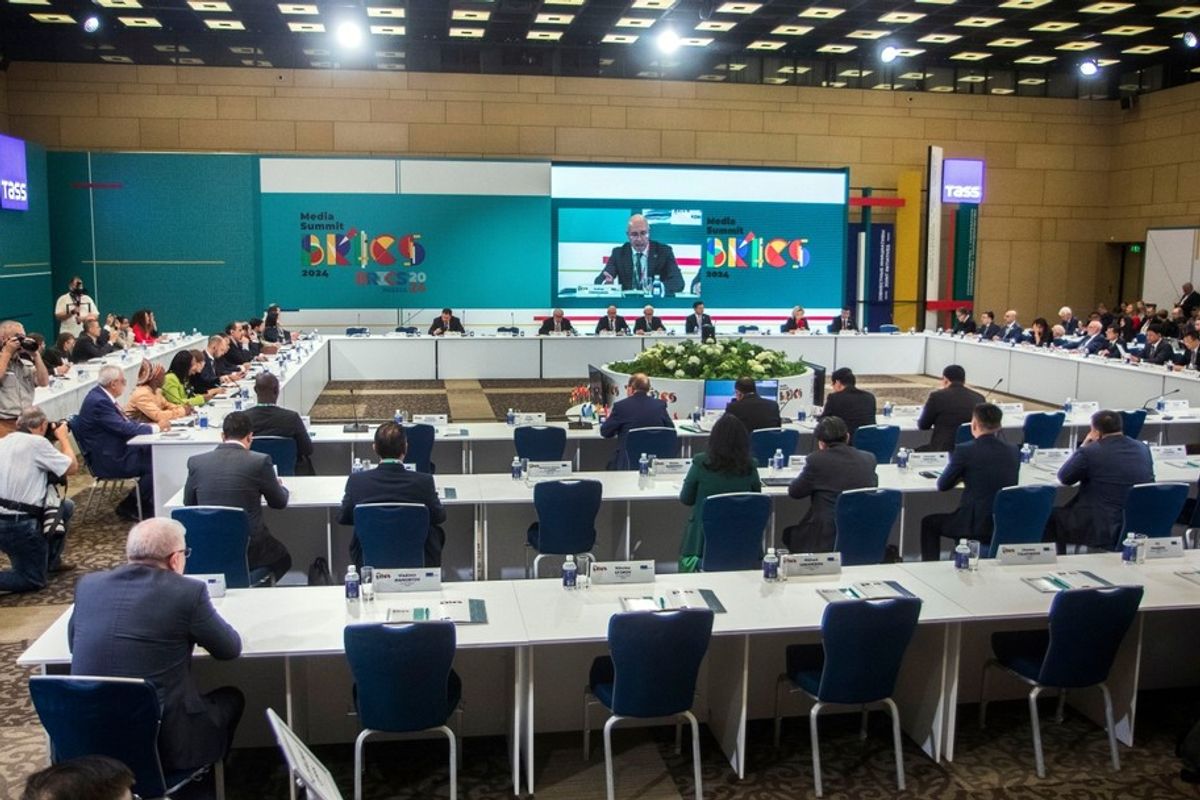BRICS to outpace G7 in driving global economic growth, IMF reports
Emerging markets like China and India are set to contribute a larger share of global growth, while the role of Western economies declines.
Dubai Desk
The Dubai Desk reports on major developments across the UAE, covering news, culture, business, and social trends shaping the region.

The IMF forecasts that BRICS nations will dominate global economic expansion over the next five years, with China and India leading the charge.
Shutterstock
The global economy is increasingly poised to lean on the BRICS nations for growth, rather than the wealthier Western economies, according to the latest forecasts from the International Monetary Fund (IMF).
In comparison to projections made just six months ago, the IMF now anticipates a larger portion of global growth over the next five years to stem from powerhouse BRICS economies like China, India, Russia, and Brazil.
These forecasts, released this week, are based on the purchasing power parity (PPP) model, which adjusts for price differences across countries.
Conversely, the outlook for the G7 nations — such as the U.S., Germany, and Japan — regarding their future contributions to global economic growth has been lowered.
Russia is working to overhaul the cross-border payment system among BRICS countries, aiming to bypass the current global financial framework and shield its economy from Western sanctions.
China is projected to be the most significant contributor to global growth over the next five years, responsible for 22% of the total—a share that exceeds the combined contribution of all G7 nations. This calculation comes from Bloomberg's analysis of the IMF’s new estimates.
India is emerging as another key driver of global growth, expected to add roughly 15% of total economic expansion by 2029.
A growing dependence on emerging markets
Further forecasts highlight that the global economy is increasingly reliant on emerging markets, especially when measured by purchasing power parity, which adjusts for price levels and gives greater weight to populous and fast-growing economies compared to wealthier nations.
Based on this metric, Egypt is forecast to contribute 1.7% to global growth in the near future, matching the contributions of both Germany and Japan.
Meanwhile, Vietnam is expected to add 1.4%, a contribution on par with both France and the UK.
Despite robust growth in the U.S. economy over the past 25 years, particularly in the post-pandemic era, the U.S. has historically been the largest contributor to growth among developed economies.
However, the U.S. has struggled to maintain its share of the global economy, especially when measured by purchasing power parity, as countries like India and China, with their massive populations, continue on faster growth trajectories.
BRICS has nearly doubled its membership this year. As the group’s members convene today in Russia, we explore what you need to know about BRICS and its growing challenge to U.S. dominance.
Looking ahead, the smallest G7 economies — Canada and Italy — are expected to contribute less than 1% each to global GDP growth over the next five years.
This is less than the expected contributions from more populous, emerging economies like Bangladesh, Egypt, and the Philippines.







Comments
See what people are discussing